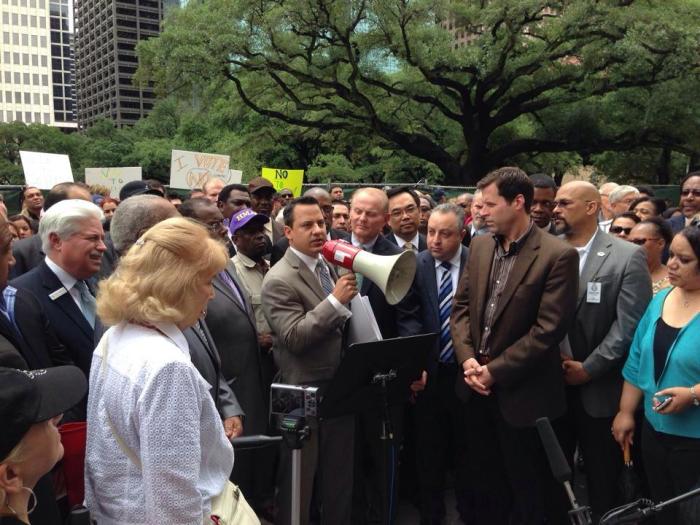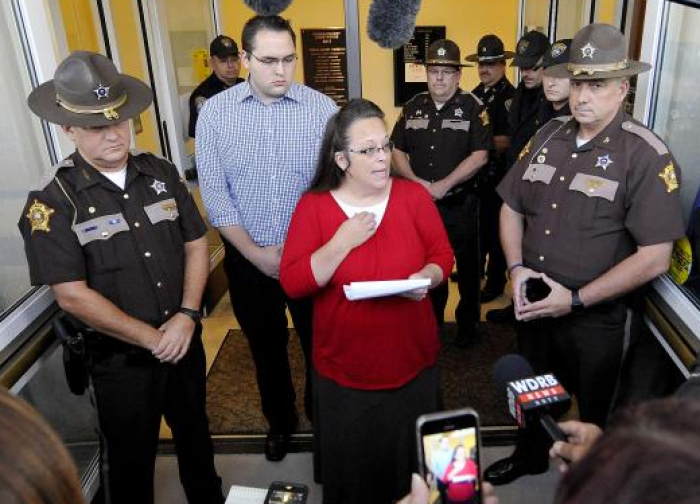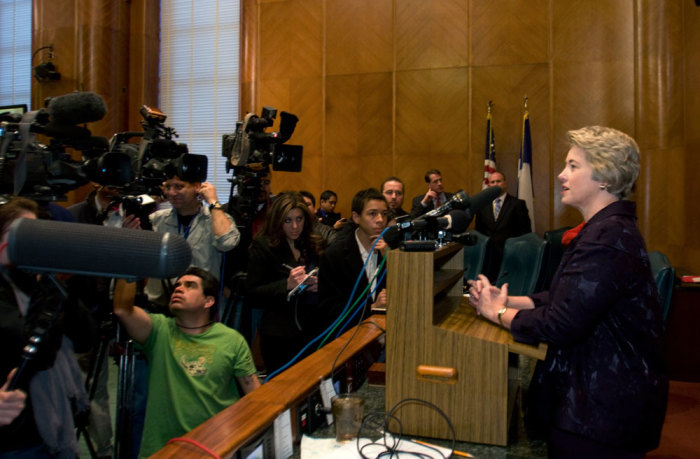5 Takeaways From Tuesday's Election Results

Results from Tuesday's election might point to a repudiation of not only President Obama's agenda but also the political establishment of both parties.
Outsiders like Dr. Ben Carson and Donald Trump continue to dominate Republican polls and Hillary Clinton is still fending off a challenge from self-described socialist Sen. Bernie Sanders.
The November off-year elections traditionally have a lower voter turnout, with much less at stake politically, as only a few states have statewide gubernatorial and legislate elections. Tuesday's elections, however, might be revealing voter push-back against perceived government overreach and a general strengthening of GOP candidates who are bucking the establishment.
Below are five possible takeaways from this week's election results:
1. Polling is becoming less reliable.
In Kentucky, GOP outsider Matt Bevin crushed Democrat nominee and Kentucky Attorney General Jack Conway in the race for governor. Every single major poll predicted a Conway victory. Conway was up by at least 5 percent in the closing moments of the race, according to state and national polls.

Bevin won 53 percent to 44 percent and might have been helped by a backlash against the arrest of county clerk Kim Davis. Bevin met with and prayed with Davis after a federal judge order her to serve jail time for refusing to issue marriage licenses after the U.S. Supreme Court ruling in favor of same-sex marriage.
Bevin, who challenged Mitch McConnell for the Kentucky Senate primary in 2014, was continually attacked by establishment Republicans for being unelectable. National Republicans even stopped supporting Bevin financially, then jumped back in at the last minute when Bevin started spending his own money.
The race highlights that polling is becoming increasingly unreliable as fewer people use telephone landlines and those being surveyed are less likely to share their views.Polling is not only inaccurate but seems to be getting worse as Republican support was wildly underestimated in 2014.
The Courier Journal printed a statement Wednesday regarding the inaccuracy of Survey USA, a polling partner of the Louisville news source.
2. Virginia might not be trending blue or Democrat like many have predicted.
Republicans have suffered big losses statewide in Virginia in recent years, especially with President Barack Obama sweeping the state in 2008 and 2012. >But despite Democrats and Virginia Gov. Terry McAuliffe putting a lot of money and time into taking back the state senate, all elected Republicans held onto their seats and maintained a narrow majority.
3. Houston's Equal Rights Ordinance failed with 62 percent voting against the measure.

Houston, the fourth largest and among the most diverse cities in the U.S., rejected a controversial ordinance that critics said would have allowed men to use women's restrooms.
Last year, with the strong support of openly gay Mayor Annise Parker, the Houston City Council voted 11 to six to approve the Equal Rights Ordinance that expanded anti-discrimination laws regarding businesses and public facilities to include sexual orientation and gender identity.
This list of protected characteristics included race, color, ethnicity, sex, national origin, age, familial and marital status, military status, religion, disability, genetic information, pregnancy, sexual orientation and gender identity.
Critics claimed HERO had several unintended consequences, such as fining Christian business owners who may be opposed to having men use women's restrooms.
In 2014, the city government tried unsuccessfully to silence churches by issuing subpoenas for sermons critical of the measure. Houston voters rejected the transgender ordinance by 2-1
4. Kentucky's election results puts a spotlight on energy-producing states.
Governor-elect Matt Bevin ran an aggressive campaign in which he highlighted the Obama administration's so-called war on coal. As Democrats continue to attack domestic energy production, their actions might actually usher in a slate of new Republican governors in subsequent elections. After Bevin is sworn in next year, the GOP will control the governorships of 32 states.
5. Political victories are temporary and Democrats had few wins.
Democrats picked up seats in the New Jersey legislature and won mayoral races in Indianapolis, Indiana, and Charlotte, North Carolina. They also managed to unseat conservative school board members in Colorado who favored school choice.




























